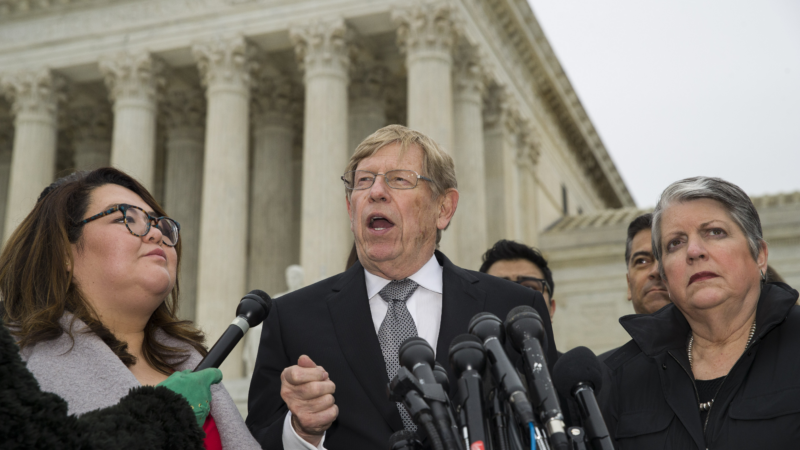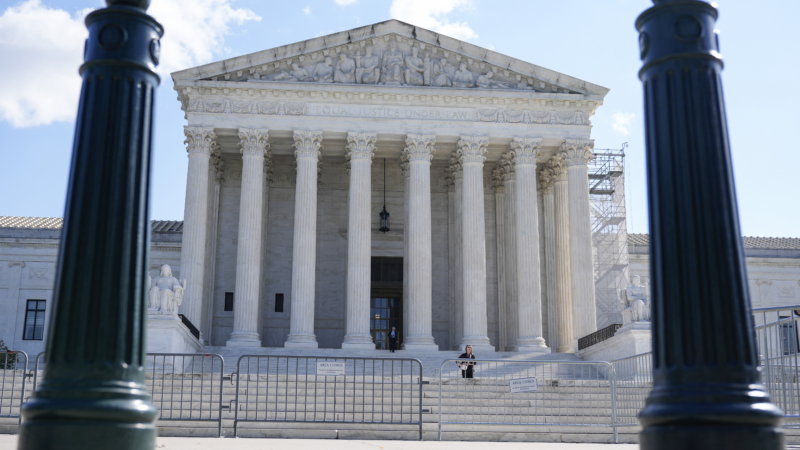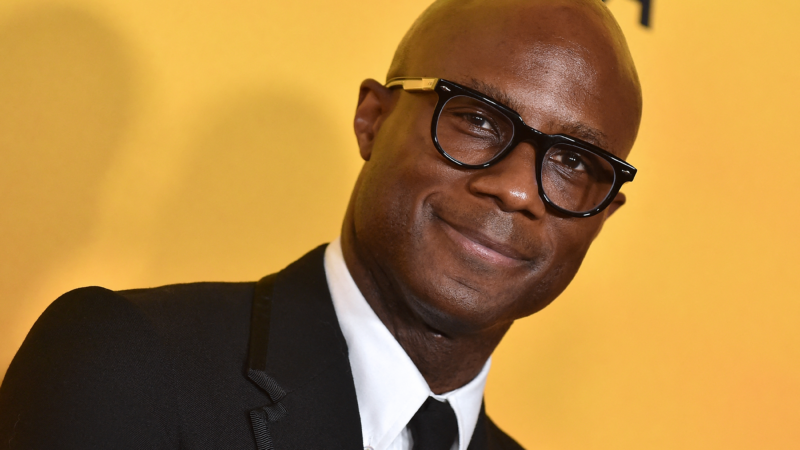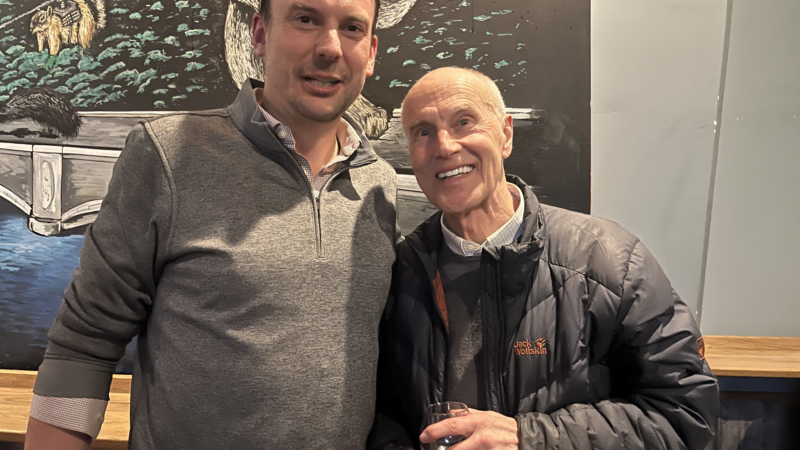Remembering Ted Olson, a titan of the law
Theodore Olson, a towering figure in the legal profession who argued 65 cases at the Supreme Court as solicitor general and as a private lawyer, died just after midnight on Wednesday, after suffering a massive stroke. He was 84.
Olson’s face and voice broke into the public consciousness in 2000 when he argued and won Bush v. Gore, the Supreme Court case that delivered the presidency to George W. Bush. His subsequent nomination to be solicitor general of the United States was fiercely opposed by Democrats who saw him as too political. But he was confirmed in a close vote and over the following three years, he proved time and again that he was a lawyer first, and a true believer second.
A longtime opponent of attempts to regulate campaign money, he nonetheless argued and won the 2003 Supreme Court case upholding a major campaign finance law aimed at curbing big money’s influence in elections.
“It wasn’t even close,” Olson once told me. “Congress passed the law; my duty was to defend it even if I disagreed with the policy.”
But six years later, as a private lawyer, he persuaded the court to eviscerate much of same campaign statute. As he famously put it in a Wall Street Journal interview: “If dancing nude and burning the flag are protected by the First Amendment, why would it not protect robust speech about people who are running for office.”
Olson’s tenure as solicitor general was marked by personal tragedy. On 9/11 his wife Barbara, herself a conservative firebrand, was on the hijacked plane that went down at the Pentagon.
“She called me from the airplane,” he recounted to NPR in 2016. “Somehow she got through. She told me that her plane had been hijacked. We talked for a minute or two, and then the line went dead.”
Olson threw himself into his work at the Justice Department, strongly defending many of the Bush Administration’s anti-terrorism policies. But on more than one occasion he warned administration officials, including the president himself, that some of those policies would not pass constitutional muster at the Supreme Court. His warnings proved prophetic in two cases, one involving the indefinite imprisonment at Guantanamo Bay of a U.S. citizen without access to a lawyer, and in the other, torture guidelines, subsequently withdrawn, that permitted extreme methods of interrogation.
Most of Olson’s legal life, however, was as a private lawyer, where, among other things, he championed the cause of corporations large and small. He was a rock star at the conservative Federalist Society. But he was also unpredictable. He championed the cause of the so-called “dreamers,” winning a case that allowed 700,000 people brought to the U.S. when they were children, to remain in the U.S. legally.
Even more prominent was his battle to strike down laws banning gay marriage. In 2010 he teared up when I asked him why, as a conservative, he was leading the charge to legalize same-sex marriage.
“If you are a conservative, how could you be against a relationship in which people who love one another want to publicly state their vows … and engage in a household in which they are committed to one another and become part of the community and accepted like other people,” he said.

He was also a staunch advocate for the rights of reporters, which is how I first met him. He was an assistant attorney general in the Reagan administration, and I was a young, and admittedly ambitious, reporter.
My problem was my beat included the Justice Department and I was being frozen out by the press office. I was not even being notified when the department was announcing a new initiative. So I was frantically looking for a solution when someone suggested I get to know Ted. So I invited him to lunch, and pleaded my case. He promptly took my complaint to Attorney General William French Smith, and as he would later tell me, Smith simply said “this is not the way we do business.”
The message was conveyed to the public information office, and the deep freeze melted.
That lunch was the beginning of a long friendship. A friendship that enriched my life, and I think his too. In political Washington, where people too often talk only to those they agree with, he was open to debating almost anything. He was seen by the right and the left as a man of principle. He was a conservative who fought the “administrative state” before it was even called that, a staunch opponent of affirmative action in college admissions, but a strong supporter of civil rights. He remained to the end, a real Republican, but he quietly, and without fanfare, declined to represent Donald Trump.
At 84 he was still practicing law earlier this week and looked more like 64, a tribute to his Scandinavian heritage, with his blond hair just beginning to gray. Just hours after being rushed to the hospital, his wife Lady — that’s her name, not her title — texted friends: “Even the mightiest engine runs out of steam. Ted’s heart stopped at 12:36 A.M., with grace and calm. Prayers for our valiant Viking!”
Millions face wintry weather for what could be a record-setting holiday travel season
More than 119 million people are expected to travel for Christmas and Hanukkah, which both fall on the same day this year, through the New Year, according to AAA.
Review by Senate Democrats finds more unreported luxury trips by Clarence Thomas
A report by Democrats on the Judiciary Committee found additional travel taken in 2021 by Thomas but not reported on his annual financial disclosure, including trips on private jets and a yacht trip.
Where did Barry Jenkins feel safe as a kid? Atop a tree
Director Barry Jenkins is best known for films like "Moonlight" and "If Beale Street Could Talk." On Wild Card, he opens up about where he felt the safest as a kid.
Israeli strikes across Gaza kill at least 20, including five children
Israeli strikes across the Gaza Strip overnight and into Sunday killed at least 20 people, including five children, Palestinian medical officials said.
I discovered one way to fight loneliness: The Germans call it a Stammtisch
Modern life can be lonely. Some are looking to an old German tradition – of drinking and conversation – to deepen connection through regular meetups.
This Christmas I’ll be grieving. Here’s how I’ll be finding joy.
Since her husband's death, newscaster Windsor Johnston has been looking for ways to recapture joy and continue her healing journey — one that's taken her to a place she'd never expected.






